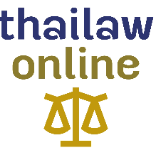The Famous Yellow Ta Bian Ban - Or House Book
-
Recently Browsing 0 members
- No registered users viewing this page.
-
Topics
-
-
Popular Contributors
-
-
Latest posts...
-
15
If You Could Live Anywhere in the World, Would You Still Choose Thailand?
If I were suddenly a billionaire, It’d buy a full floor penthouse in Bangkok and five homes in the US. -
9
-
2
US Announces Tariffs for Thai Imports
Hard to figure out how anyone still believes this. -
2
USA Trump Threatens 10% Tariff on Nations Aligning with BRICS Policies
What a lovely group. They should have tariffs imposed for human rights abuses alone. -
2
USA New Video Footage Chilling School Attack Foiled by Teens Amid Alleged Honor Killing Attempt
It seems this type of cultural enrichment is not unique to the UK. -
9
Community Australian Tourist Found Dead After Massage on Koh Samui
So dangerous ..think I'll stick to a couple of beers in a quiet bar!.....
-
-
Popular in The Pub













Recommended Posts
Create an account or sign in to comment
You need to be a member in order to leave a comment
Create an account
Sign up for a new account in our community. It's easy!
Register a new accountSign in
Already have an account? Sign in here.
Sign In Now